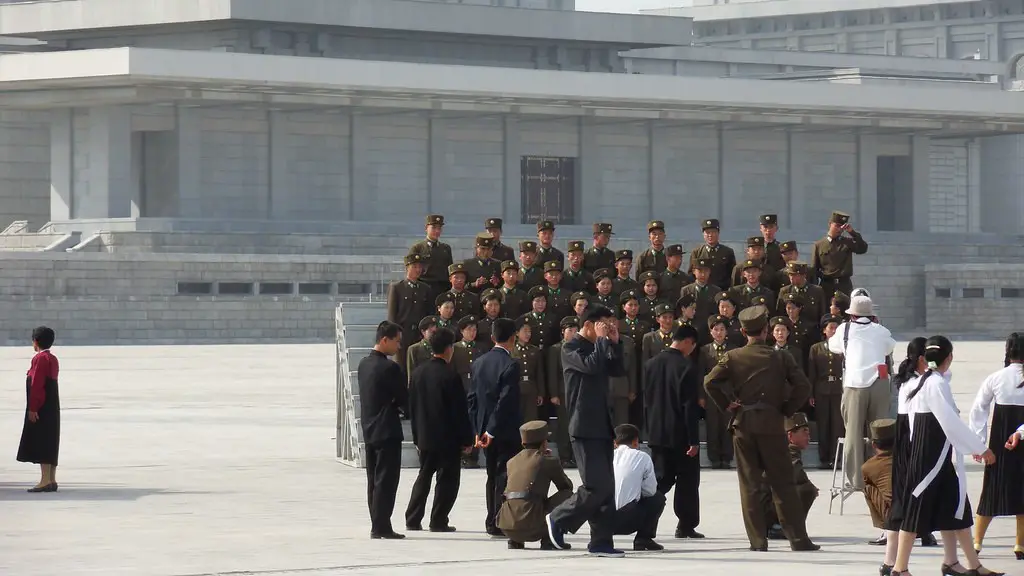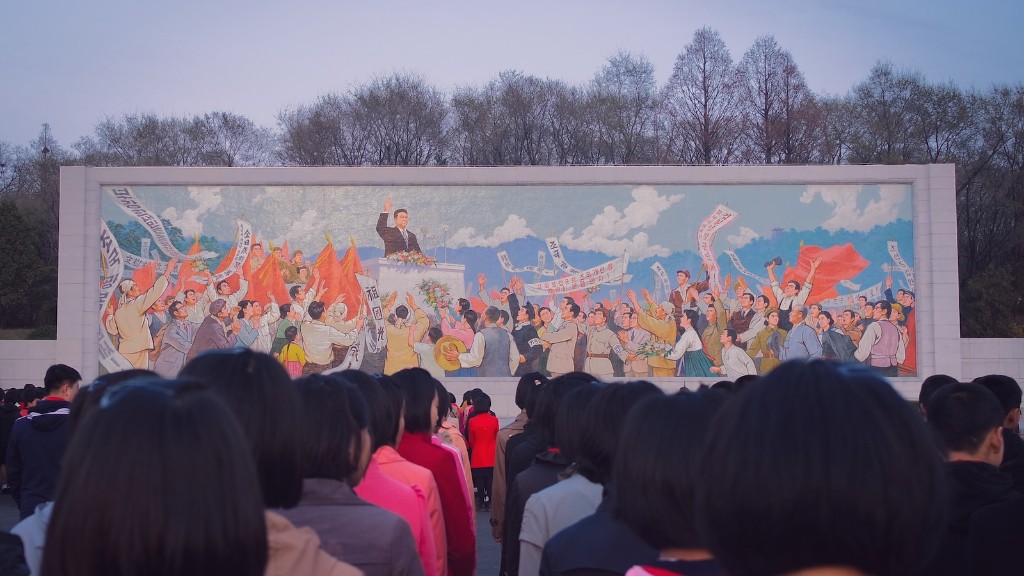Background Information
North Korea is a state in Northeast Asia and is officially known as the Democratic People’s Republic of Korea (DPRK). It is a one-party state led by the Korean Worker’s Party and its constitution is based on the ‘Juche’ ideology of national self reliance. North Korea was founded in 1948 and has experienced numerous conflicts in the region, including the Korean War and the Six-party Talks. North Korea is now home to roughly 25 million people and is notorious for its nuclear weapons program and oppressive government.
Who Started North Korea?
To many people unfamiliar with the history of North Korea, it can be difficult to ascertain who started the country and what exactly that means. The person who is most associated with the founding of North Korea is Kim Il-sung. Kim Il-sung was a Korean nationalist leader and Communist politician who served as the first leader of North Korea from 1948 until his death in 1994.
Kim Il-sung was born in 1912 in what is now North Korea and spent his early years as an anti-Japanese guerrilla fighter. After World War II and the Japanese surrender, Kim Il-sung returned to Korea, where he found himself in a unique position to assume leadership of a newly liberated nation. In September 1948, he declared the founding of the Democratic People’s Republic of Korea – what we now know as North Korea – and became the official leader of the new nation.
Despite having received some education in military history, philosophy, and Chinese and English, Kim Il-sung was not well-educated in the traditional sense. His primary focus remained on politics and military tactics. As leader of North Korea, he established a cult of personality and launched a number of military campaigns, the most notable resulting in the Korean War.
What Was the Key to Kim Il-Sung’s Success?
Kim Il-sung was able to remain in power for as long as he did due to a variety of factors, most notably the powerful cult of personality he established and the authoritarian nature of the North Korean government. To this day, North Korean citizens are indoctrinated from a young age to revere Kim Il-sung, who is sometimes called the “Great Leader.” Kim’s image is ubiquitous in North Korea, and he remains a revered figure even after his death.
In addition to the cult of personality, Kim Il-sung’s success was also due to his reliance on a strong military and established control over the media and other forms of communication. Under his rule, North Korea experienced considerable economic growth, as well as increased spending on military and nuclear weaponry. Despite his numerous successes and achievements, Kim Il-sung’s legacy is marked by a traumatic and oppressive regime, one that has led to the deprivation of numerous human rights and the suffering of countless innocent citizens.
The Current Situation in North Korea
Kim Il-sung was succeeded by his son, Kim Jong-il, who continued to build upon his father’s legacy, focusing heavily on the military and nuclear development and further strengthening the cult of personality. When Kim Jong-il died in 2011, his son, Kim Jong-un, stepped into power as the new leader of North Korea.
Under Kim Jong-un, North Korea’s nuclear weapons program has become increasingly sophisticated and pervasive, leading to several rounds of tightened sanctions. In addition, Kim Jong-un’s rule has been marked by a continuation of human rights abuses, including the severe restriction of freedom of speech and the press. Despite this, the cult of personality surrounding the Kim family remains firmly entrenched in the nation and among North Korean citizens.
Foreign Relations
Over the years, North Korea has had an extremely strained relationship with the international community. North Korea is currently in diplomatic talks with several countries, including the United States and South Korea, in an attempt to restructure its foreign policy and repair relations. Despite this, North Korea has been largely insular and hostile towards the international community, leading to a number of sanctions and embargoes.
The Impact of North Korea’s Foundations
The founding of North Korea has had a profound impact on the region and the world. The country remains one of the most reclusive nations in the world, with a largely oppressive regime, little to no human rights, and a dangerous nuclear weapons program. North Korea’s founding has also caused considerable tension and instability in the region, resulting in numerous conflicts and crises over the past 70 years.
North Korea and the International Community
The international community has largely opposed the policies of North Korea and has sought to place sanctions, embargoes, and other economic pressure on the nation in order to curb its nuclear weapons development and undermine the oppressive regime. Despite this, North Korea remains largely aloof from the international community and defiant of international law.
The Future of North Korea
It is difficult to predict what the future holds for North Korea. The country has long been one of the most reclusive and oppressive nations in the world and recent diplomatic efforts have yet to yield any meaningful progress towards a more open and cooperative North Korea. The future of North Korea will largely depend on the actions of leaders and citizens both inside and outside the nation.


